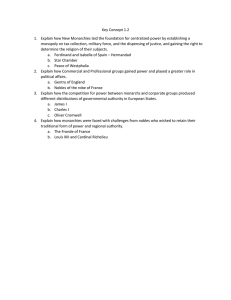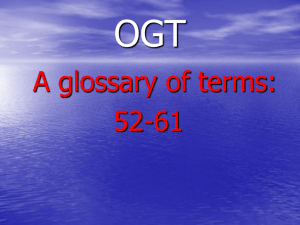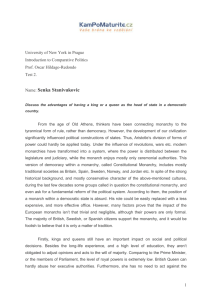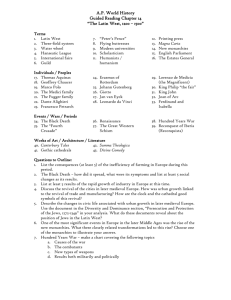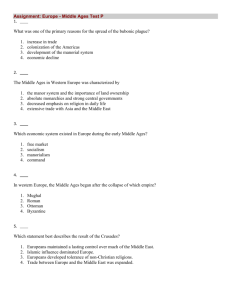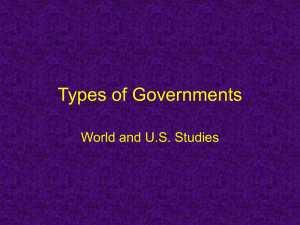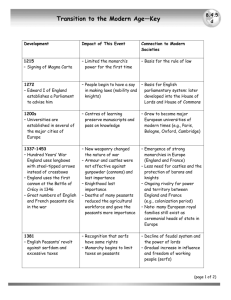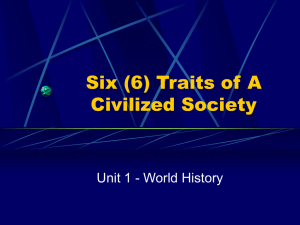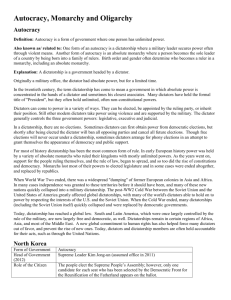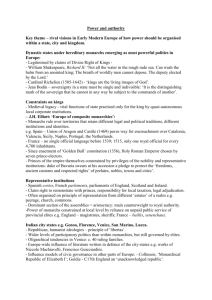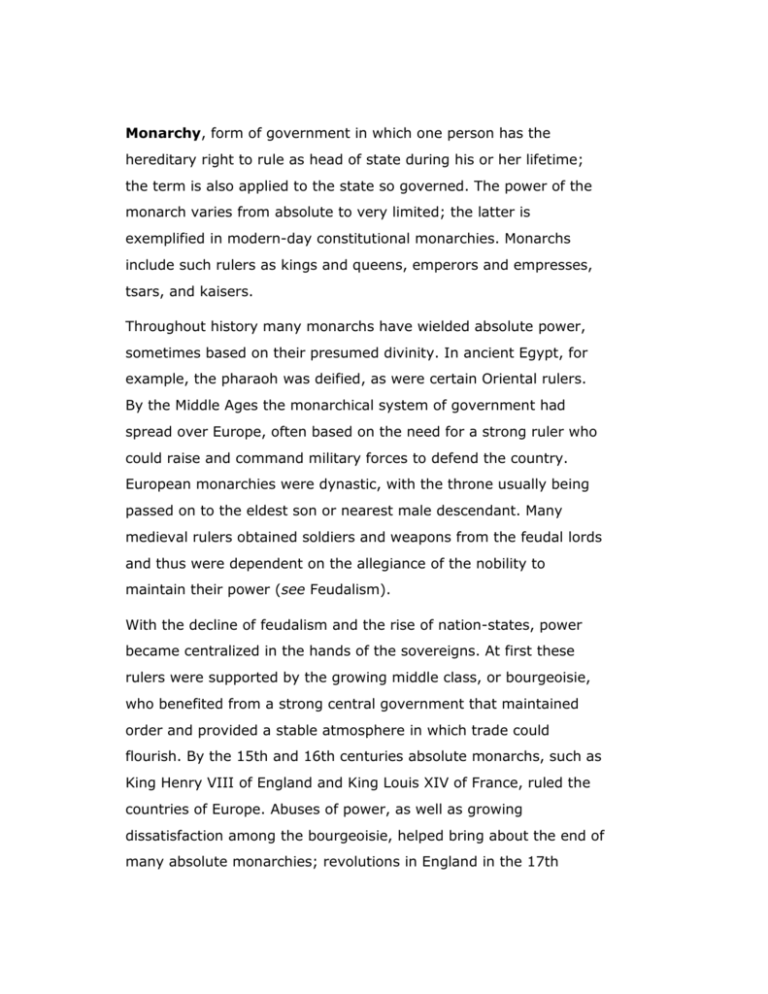
Monarchy, form of government in which one person has the
hereditary right to rule as head of state during his or her lifetime;
the term is also applied to the state so governed. The power of the
monarch varies from absolute to very limited; the latter is
exemplified in modern-day constitutional monarchies. Monarchs
include such rulers as kings and queens, emperors and empresses,
tsars, and kaisers.
Throughout history many monarchs have wielded absolute power,
sometimes based on their presumed divinity. In ancient Egypt, for
example, the pharaoh was deified, as were certain Oriental rulers.
By the Middle Ages the monarchical system of government had
spread over Europe, often based on the need for a strong ruler who
could raise and command military forces to defend the country.
European monarchies were dynastic, with the throne usually being
passed on to the eldest son or nearest male descendant. Many
medieval rulers obtained soldiers and weapons from the feudal lords
and thus were dependent on the allegiance of the nobility to
maintain their power (see Feudalism).
With the decline of feudalism and the rise of nation-states, power
became centralized in the hands of the sovereigns. At first these
rulers were supported by the growing middle class, or bourgeoisie,
who benefited from a strong central government that maintained
order and provided a stable atmosphere in which trade could
flourish. By the 15th and 16th centuries absolute monarchs, such as
King Henry VIII of England and King Louis XIV of France, ruled the
countries of Europe. Abuses of power, as well as growing
dissatisfaction among the bourgeoisie, helped bring about the end of
many absolute monarchies; revolutions in England in the 17th
century and in France in the 18th century were major landmarks in
the limitation of absolute power.
The modern concept of a limited, constitutional monarchy arose
slowly throughout much of Europe. During the 19th century,
parliamentary authority grew while royal power diminished. Many
Western monarchies ceased to exist after World War I, including
those in Russia, Germany, and Austria. In later years others were
replaced by Communist governments. Some constitutional
monarchies still survive, primarily as symbols of national unity.
Among the most enduring are those of the United Kingdom, the
Netherlands, Norway, Sweden, Denmark, and Belgium.
See also Divine Right of Kings; Government.1
1"Monarchy," Microsoft® Encarta® Encyclopedia 99. © 1993-1998 Microsoft
Corporation. All rights reserved.

